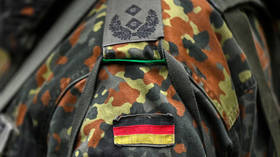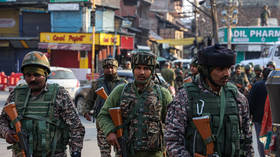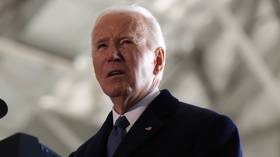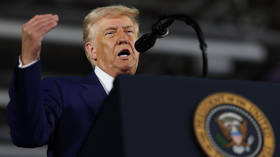German army losing manpower – Bild

The German army has neither the strength nor the equipment required to effectively defend the nation, the tabloid Bild reported on Wednesday, citing its own analysis of the state of the armed forces. The outlet was fact-checking a warning issued last week by Inspector General Carsten Breurer, the country’s top-ranking military official.
In 2018, then-defense minister Ursula von der Leyen aimed to boost the number of German troops to 203,000 by 2025. Current Minister of Defense Boris Pistorius has pushed the deadline to 2031 and kept the strength target, which some experts consider not high enough, Bild noted.
The actual number of armed forces personnel dropped from roughly 183,000 in the summer to 181,383 as of the end of October, with thousands of vacancies unfilled. Only 0.4% of the total German population are in the military.
Bild wondered who would defend Germany in a hypothetical conflict with a foreign power, implying that Moscow was the most likely opponent. An expert quoted by the newspaper mused that a Russian hypersonic missile could reach Berlin in four minutes, as he discussed the lack of war preparedness in the EU nation.
Moscow has expressed no intention to attack any member of NATO, dismissing claims to the contrary made by senior Western officials.
German military hardware is also in a poor state, according to the tabloid. It is down to 200 main battle tanks, only half of them operational, with the industry capable of rolling out just three new vehicles per month.
Other military equipment, from aircraft to small arms to radios and helmets, is largely outdated, with some of the replacement hardware not expected for years, Bild said. Civil defense infrastructure, including hospitals and bunkers, has been downsized since the Cold War, just like the armed forces.
Breuer, who was appointed inspector general in March, discussed the state of the Bundeswehr, the country’s armed forces, with Frankfurter Allgemeine Zeitung newspaper last Sunday, warning that it may be incapable of fulfilling its NATO obligations or even its main purpose of self-defense.
Under the leadership of Chancellor Olaf Scholtz, Germany became a major supplier of arms to Ukraine. Some officials, including Eberhard Zorn, Breuer’s predecessor, have warned that Berlin was weakening its security to prop up Kiev in its conflict with Moscow.
The Scholtz government is mulling a declaration of a state of emergency, as legal restrictions on the federal budget deficit prevent him from providing as much military and financial assistance to Ukraine as he deems necessary.














